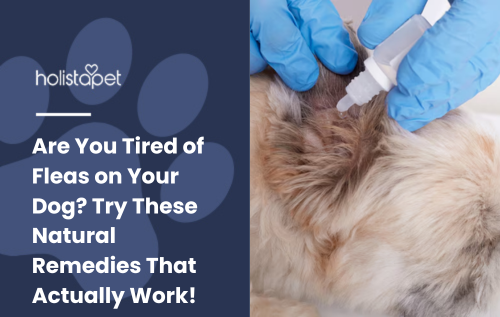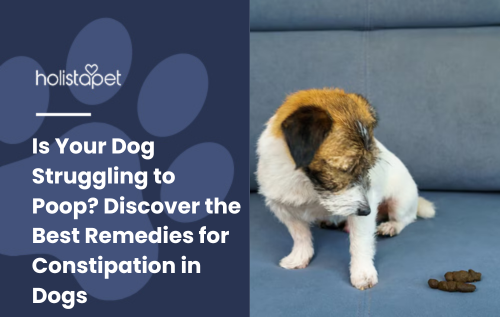If your dog is constantly scratching and you’re finding tiny invaders in their fur (or worse—on your furniture!), it’s time to take action. But what if you want to avoid harsh chemicals and use a gentler, more holistic approach? That’s where natural remedies come in. In this post, we’ll explore effective, vet-recommended natural solutions for getting rid of fleas on dogs—and preventing them from coming back.
Why Choose Natural Remedies for Fleas?
Natural remedies are ideal for dogs with sensitive skin or for pet owners who prefer eco-friendly and non-toxic options. They can be just as effective as conventional treatments—without the risk of adverse reactions.
Top Natural Remedies for Fleas on Dogs
1. Apple Cider Vinegar Spray
Apple cider vinegar (ACV) changes your dog’s pH balance, making it less attractive to fleas.
-
Mix: 1 part ACV + 1 part water
-
Optional: Add a few drops of lavender or cedarwood essential oil (safe for dogs)
-
Use: Spray on your dog’s coat (avoiding eyes and open wounds)
2. Coconut Oil Rub
Coconut oil has antibacterial, antifungal, and antiparasitic properties.
-
Rub a small amount into your dog’s fur, especially around the neck and base of the tail
-
Fleas dislike the oily texture and scent
3. Lemon Flea Comb Rinse
Lemon contains D-limonene, a natural flea deterrent.
-
Boil a sliced lemon in water and let it steep overnight
-
Strain and pour into a spray bottle or use with a flea comb
-
Comb through your dog’s coat daily
4. Diatomaceous Earth (Food Grade)
This powder dehydrates fleas by breaking down their exoskeleton.
-
Sprinkle a light dusting on your dog’s bedding and in carpeted areas
-
Leave for 24 hours and vacuum thoroughly
-
Be sure to use only food-grade diatomaceous earth
5. Herbal Flea Collar
DIY herbal collars can help repel fleas without chemicals.
-
Soak a cloth or hemp collar in a mix of:
-
2 tbsp witch hazel
-
5 drops each of lavender and eucalyptus essential oils
-
Let dry before placing on your dog
-
⚠️ Note: Always consult your vet before using essential oils on or around pets. Some oils are toxic to dogs.
Frequently Asked Questions
Q: Are natural remedies safe for puppies?
A: Some are, but always check with your vet first. Avoid essential oils with very young or small-breed puppies.
Q: Can I use these remedies in combination with traditional flea treatments?
A: In many cases, yes. Natural remedies can complement traditional treatments but check with your veterinarian to avoid interactions.
Q: How long does it take for natural remedies to work?
A: You may notice fewer fleas in as little as 24–48 hours, but consistent use over a few weeks ensures best results.
Q: Do natural remedies work as well as prescription treatments?
A: They can be effective, especially for prevention and mild infestations, but severe cases may still require prescription products.
 Final Thoughts
Final Thoughts
Fleas are a nuisance—but you don’t have to resort to harsh chemicals to get rid of them. With consistent care and these natural remedies, your dog can live a scratch-free life while staying safe from unnecessary toxins.
Helpful Notes:
-
Always patch test sprays or oils before full application.
-
Keep your home clean: vacuum regularly and wash pet bedding weekly.
-
Use flea combs daily during peak seasons (spring/summer).
-
Reapply natural sprays and treatments after your dog gets wet.
Ready to give your dog relief the natural way? Try these remedies today and watch those pesky fleas disappear—without compromising your pet’s health.




 CBD Oil for Dogs - Fast Acting
CBD Oil for Dogs - Fast Acting
 Chicken Flavored CBD Oil For Dogs - Easy Dose
Chicken Flavored CBD Oil For Dogs - Easy Dose
 Salmon Flavored CBD Oil For Dogs - Highly Rated
Salmon Flavored CBD Oil For Dogs - Highly Rated
 CBG Oil for Dogs and Cats - Loved by Thousands
CBG Oil for Dogs and Cats - Loved by Thousands





Leave a comment
This site is protected by hCaptcha and the hCaptcha Privacy Policy and Terms of Service apply.